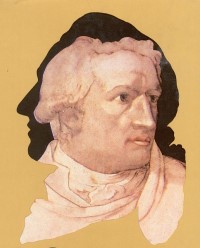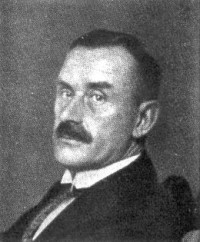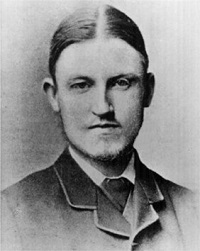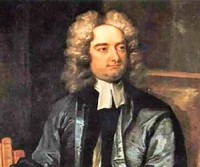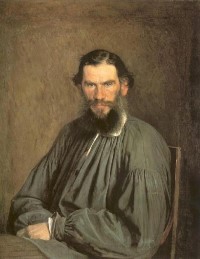“Mathematics has the completely false reputation of yielding infallible conclusions. Its infallibility is nothing but identity. Two times two is not four, but it is just two times two, and that is what we call four for short. But four is nothing new at all. And thus it goes on and on in its conclusions, except that in the higher formulas the identity fades out of sight.”
“I tell them that if they will occupy themselves with the study of mathematics they will find in it the best remedy against the lusts of the flesh.”
“Some of the men stood talking in this room, and at the right of the door a little knot had formed round a small table, the center of which was the mathematics student, who was eagerly talking. He had made the assertion that one could draw through a given point more than one parallel to a straight line; Frau Hagenström had cried out that this was impossible, and he had gone on to prove it so conclusively that his hearers were constrained to behave as though they understood.”
Epitaph on Newton:
“Nature and Nature’s law lay hid in night:
God said, ‘Let Newton be!,’ and all was light.”
Added by Sir John Collings Squire:
“It did not last: the Devil shouting ‘Ho.
Let Einstein be,’ restored the status quo.”
Aaron Hill’s version:
“O’er Nature’s laws God cast the veil of night,
Out blaz’d a Newton’s souland all was light.”
“Order is Heaven’s first law.”
“See skulking Truth to her old cavern fled,
Mountains of Casuistry heap’d o’er her head!
Philosophy, that lean’d on Heav’n before,
Shrinks to her second cause, and is no more.
Physic of Metaphysic begs defence,
And Metaphysic calls for aid on Sense!
See Mystery to Mathematics fly!”
“I cannot do it without comp[u]ters.”
“Though this be madness, yet there is method in’t.”
“O God! I could be bounded in a nutshell, and count myself king of infinite space, were it not that I have bad dreams.”
“I am ill at these numbers.”
“Tyndall declared that he saw in Matter the promise and potency of all forms of life, and with his Irish graphic lucidity made a picture of a world of magnetic atoms, each atom with a positive and a negative pole, arranging itself by attraction and repulsion in orderly crystalline structure. Such a picture is dangerously fascinating to thinkers oppressed by the bloody disorders of the living world. Craving for purer subjects of thought, they find in the contemplation of crystals and magnets a happiness more dramatic and less childish than the happiness found by mathematicians in abstract numbers, because they see in the crystals beauty and movement without the corrupting appetites of fleshly vitality.”
“The mathematician is fascinated with the marvelous beauty of the forms he constructs, and in their beauty he finds everlasting truth.”
“What vexes me most is, that my female friends, who could bear me very well a dozen years ago, have now forsaken me, although I am not so old in proportion to them as I formerly was: which I can prove by arithmetic, for then I was double their age, which now I am not.”
“If they would, for Example, praise the Beauty of a Woman, or any other Animal, they describe it by Rhombs, Circles, Parallelograms, Ellipses, and other geometrical terms…”
“A modern branch of mathematics, having achieved the art of dealing with the infinitely small, can now yield solutions in other more complex problems of motion, which used to appear insoluble. This modern branch of mathematics, unknown to the ancients, when dealing with problems of motion, admits the conception of the infinitely small, and so conforms to the chief condition of motion (absolute continuity) and thereby corrects the inevitable error which the human mind cannot avoid when dealing with separate elements of motion instead of examining continuous motion. In seeking the laws of historical movement just the same thing happens. The movement of humanity, arising as it does from innumerable human wills, is continuous. To understand the laws of this continuous movement is the aim of history. Only by taking an infinitesimally small unit for observation (the differential of history, that is, the individual tendencies of man) and attaining to the art of integrating them (that is, finding the sum of these infinitesimals) can we hope to arrive at the laws of history.”
“A man is like a fraction whose numerator is what he is and whose denominator is what he thinks of himself. The larger the denominator the smaller the fraction.”
Vous avez trouve par de long ennuis
Ce que Newton trouva sans sortir de chez lui.”
“He who has heard the same thing told by 12,000 eye-witnesses has only 12,000 probabilities, which are equal to one strong probability, which is far from certain.”
“There are no sects in geometry.”

(Source: Furman University—Mathematical Quotation Server.)
